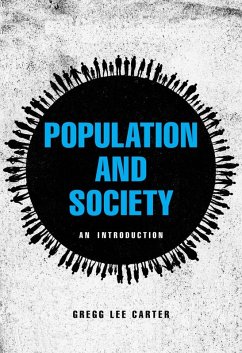
The Economic Sociology of Development (eBook, ePUB)
Versandkostenfrei!
Sofort per Download lieferbar
16,99 €
inkl. MwSt.
Weitere Ausgaben:

PAYBACK Punkte
0 °P sammeln!
Bringing the study of international inequality back into the core of sociological theory, this book offers a user-friendly introduction to development and underdevelopment. In doing so, it places various approaches to the definition, measurement, and understanding of "development" against the backdrop of broader sociological debates. Schrank draws concrete examples from different regions and epochs to explore sociological thinking about development and underdevelopment informed by the latest currents in economic sociology. Across a series of chapters, he identifies relationships between mainst...
Bringing the study of international inequality back into the core of sociological theory, this book offers a user-friendly introduction to development and underdevelopment. In doing so, it places various approaches to the definition, measurement, and understanding of "development" against the backdrop of broader sociological debates. Schrank draws concrete examples from different regions and epochs to explore sociological thinking about development and underdevelopment informed by the latest currents in economic sociology. Across a series of chapters, he identifies relationships between mainstream and Marxist approaches to the study of international inequality; uses classical and contemporary social theory to develop a parsimonious typology of national development outcomes; addresses cross-border learning and diffusion in light of the latest developments in organization theory; considers the roles of religious, racial, and gender identities in the development process in different places and times; and portrays contemporary global challenges such as populism, pandemics, and climate change as distinctly sociological problems in need of multifaceted solutions. Enriched with expository figures, tables, and diagrams, this accessible book simultaneously distills and develops the sociological approach to the study of development and underdevelopment for both undergraduate and graduate students across the social sciences.
Dieser Download kann aus rechtlichen Gründen nur mit Rechnungsadresse in A, B, BG, CY, CZ, D, DK, EW, E, FIN, F, GR, HR, H, IRL, I, LT, L, LR, M, NL, PL, P, R, S, SLO, SK ausgeliefert werden.













